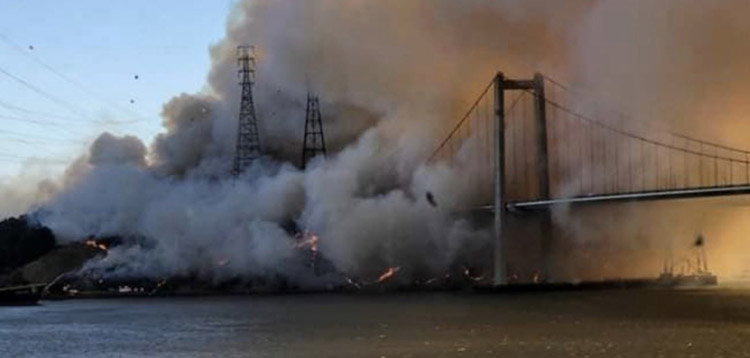
The California Department of Insurance is invoking a law passed in 2018 that bans insurance companies from dropping or refusing to renew homeowners policies in zip codes within or adjacent to the perimeters of recent fires. This will apply for one year after the Governor declared a state of emergency in October, 2018 and will affect at least 800,000 homes in wildfire disaster areas in Northern and Southern California. The action by Insurance Commissioner Ricardo Lara is the result of Senate Bill 824 that he authored last year while serving as state senator.
In his announcement about the localized ban, the Commissioner went a step further and called on insurance companies to voluntarily cease all non-renewals related to wildfire risk statewide until December 5, 2020.
Many homeowners in California are finding that the premiums on their policies have doubled or tripled in the last two years, and insurance companies in some cases are canceling or refusing to renew policies on residences in areas where wildfires have occurred. California’s property insurers are beginning to retreat from areas they identify as having higher wildfire risk.
Local governments are concerned that this trend could disrupt local real estate markets and cause property values to decline, reducing tax revenue available for vital services to residents such as fire protection, community fire mitigation, law enforcement, road repairs, and hospitals.
The California Department of Insurance has identified some of the zip codes affected by the temporary ban on dropping or refusing to renew homeowners policies. The following fires with the affected zip codes are listed: Saddleridge, Eagle, Kincade, Tick, Getty, Hill, and Maria.
CAL FIRE has not yet provided the fire perimeter maps for the Water, 46, Hillside, Easy, Sky, and Glen Cove Fires, therefore the zip codes near these fires is not yet available.
Opinion: Could this be a tipping point?
I have wondered for years when the insurance companies were going to drastically raise their rates or refuse to issue policies in wildfire-prone areas. I figured that when it occurred it could be a tipping point that could lead to broad positive actions affecting the resiliency of communities at risk from wildfires. Either that, or those areas could experience significant outward migration of residents, causing economic disruption.
Fire-prone communities, if they are going to survive over the long term, have to learn to live with fire. Sticking their heads in the sand and thinking fires can’t happen to them is not recognizing reality.
Earlier this year I wrote an article about “Five things that need to be done to protect fire-prone communities”. In areas where they are adopted insurance companies could recognize that homes would be less likely burn in a wildfire and adjust their rates accordingly.
Here are the broad areas that need to be considered:
- Home spacing and lot size
- Envelope of the structure itself
- Home ignition zone
- Community infrastructure and planning
- Wildland-urban interface
The only effective way to ensure that residents understand and implement these five tasks is to make them mandatory by establishing Fire Codes at the local and state levels.

Recently visited with two Sierra Nevada Mountain residences who have homes of about 2500 square feet in size. The government is now providing fire insurance in their high risk zones. Only $9000 per year. Max coverage $300,000. ouch.
If insurance companies feel they need to pull out of the state then they do not need to be here in the first place. Despite the state’s natural hazards this is way to big of a market for any legit company to pass up. To much money to be made based on population and economy. Reminds me of the early 1990’s when a couple of large company’s pulled out of the state on auto policies due to the state implementing reforms. That ended up backfiring on them as the existing insurers had a feeding frenzy on what was left on the table.
Another fine example of government putting their nose into business where it does not belong. It should be a business decision by the company. Not a strong-arm political decision made for them. Political tactics like this will force the insurance racketeers to simply pull out of Cali altogether so they don’t have to refuse homeowners. Then what will you do for your citizens Mr. Governor of Cali? Raise more taxes so you can provide State insurance? Or sue another utility?